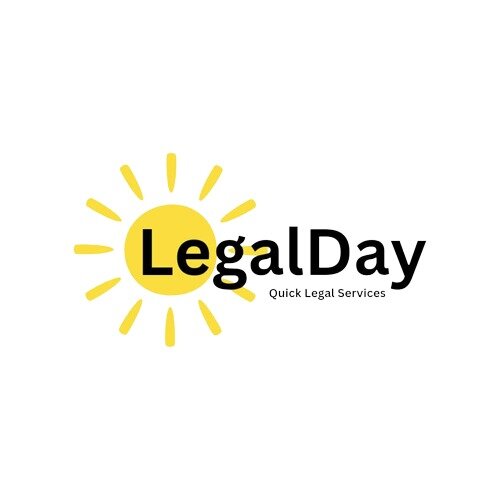Best Criminal Defense Lawyers in Indore
Share your needs with us, get contacted by law firms.
Free. Takes 2 min.
List of the best lawyers in Indore, India
India Criminal Defense Legal Questions answered by Lawyers
Browse our 1 legal question about Criminal Defense in India and read the lawyer answers, or ask your own questions for free.
- मैं श्योपुर MP MAIN RHTA HU MERE BADE BHAI KO रेंज साइबर थाने वाले लेकर गए है हमारे घर से उन्होंने ने बताया कोई ऐप से लिंक शेयर करके FROUD किया है
- फिर 3 nov ko unka call aaya bola hum inhe मजिस्ट्रेट ke saamne पेस kr rhe hai uske baad mujhe koi jankari nahi di gyi call kr rha hu to utha bhi nahi rhe main kya kru meri madad kre
-
Lawyer answer by mohammad mehdi ghanbari
Hello, good morning. I understand you're very worried right now. This is a difficult situation. The most important step is to find a local lawyer who can take immediate action. Here's information about the legal process and your rights regarding...
Read full answer
About Criminal Defense Law in Indore, India
The Criminal Defense Law in Indore, Madhya Pradesh, India, revolves around the regulations stipulated under the Indian Penal Code (IPC) and the Code of Criminal Procedure 1973 (CrPC). These are the primary legal codes designing the criminal jurisprudence in India, ensuring crime punishment and establishing the defendant's rights during the legal proceedings. Indore's emphasis is also on upholding the ideal that a person is 'innocent until proven guilty.'
Why You May Need a Lawyer
Legal assistance is crucial in situations involving accusations of criminal activities or charges. These circumstances may include theft, assault, domestic violence, fraudulent actions, or even more serious charges like murder. A qualified lawyer can present your case effectively, protecting your rights, and negotiating for the most favourable outcome on your behalf. It's also beneficial to communicate with the police, handle paperwork, and provide a robust legal strategy for your defense.
Local Laws Overview
Indore, along with the rest of India, adheres to the IPC and CrPC. Some key aspects pertinent to criminal defense law include justice, equality, and the protection, primarily dealing with crime definitions, penalties, and procedures for arrests, bail, evidence, and trials. Noteworthy aspects include the right to a speedy trial, right against retrospective punishment, and the right to consult with a legal practitioner.
Frequently Asked Questions
What is the role of a criminal defense lawyer?
A criminal defense lawyer represents a person accused of a crime. They guide the defendant through legal processes, build a strong defense strategy, handle pleas, and conduct trial proceedings.
What rights do I have if I am arrested?
If you get arrested, you have the right to consult a lawyer, be informed about the grounds of arrest, seek bail, and remain silent to avoid self-incrimination.
Can I represent myself in court?
While it's legally possible to represent oneself, it's generally not recommended given the complexity of criminal laws and court procedures. A defense attorney's expertise increases your chances of a favorable outcome.
What happens during an initial client-lawyer meeting?
The lawyer will want to know the case details and begin devising an appropriate defense strategy. This might include discussing evidence, witnesses, and the possible legal implications.
What is bail?
Bail is a process of obtaining release from custody by assuring your presence during the court proceedings when called upon. The court may ask for a financial deposit as a condition.
What is plea bargaining?
Plea bargaining is a process where the defendant pleads guilty to a lesser charge in exchange for a reduced sentence. This requires a thorough understanding of legal implications and should be undertaken with a lawyer's help.
How is sentencing determined?
Sentencing depends on the offense severity, accused history, mitigation circumstances, and the punishment outlined in the law for the committed crime.
What is an appeal?
An appeal is a legal procedure where the decision of a lower court is challenged in a higher court. You can appeal a guilty verdict or sentence, but within a limited time frame after judgment.
Are juvenile offenders treated differently?
Yes, Juvenile offenders (below 18 years) are generally treated differently under the Juvenile Justice Act, aiming toward their rehabilitation rather than punishment.
Can I change my lawyer during trial?
Yes, you can change your lawyer during the trial. However, this may result in delayed proceedings and may require court approval.
Additional Resources
The following can be helpful additional resources:
1. The Public Prosecutor's Office: They can provide guidance on prosecution procedures.
2. National Legal Services Authority (NALSA): NALSA offers free legal aid to eligible individuals.
3. Local legal aid clinics: These clinics provide free or low-cost legal advice.
Next Steps
If you require criminal defense, it is advisable to engage a lawyer as soon as possible. Ensure you provide all relevant details about your case to your lawyer. Stay calm, cooperative and trust your lawyer to navigate the criminal justice system effectively on your behalf.
Lawzana helps you find the best lawyers and law firms in Indore through a curated and pre-screened list of qualified legal professionals. Our platform offers rankings and detailed profiles of attorneys and law firms, allowing you to compare based on practice areas, including Criminal Defense, experience, and client feedback.
Each profile includes a description of the firm's areas of practice, client reviews, team members and partners, year of establishment, spoken languages, office locations, contact information, social media presence, and any published articles or resources. Most firms on our platform speak English and are experienced in both local and international legal matters.
Get a quote from top-rated law firms in Indore, India — quickly, securely, and without unnecessary hassle.
Disclaimer:
The information provided on this page is for general informational purposes only and does not constitute legal advice. While we strive to ensure the accuracy and relevance of the content, legal information may change over time, and interpretations of the law can vary. You should always consult with a qualified legal professional for advice specific to your situation.
We disclaim all liability for actions taken or not taken based on the content of this page. If you believe any information is incorrect or outdated, please contact us, and we will review and update it where appropriate.
Browse criminal defense law firms by service in Indore, India
Indore, India Attorneys in related practice areas.














